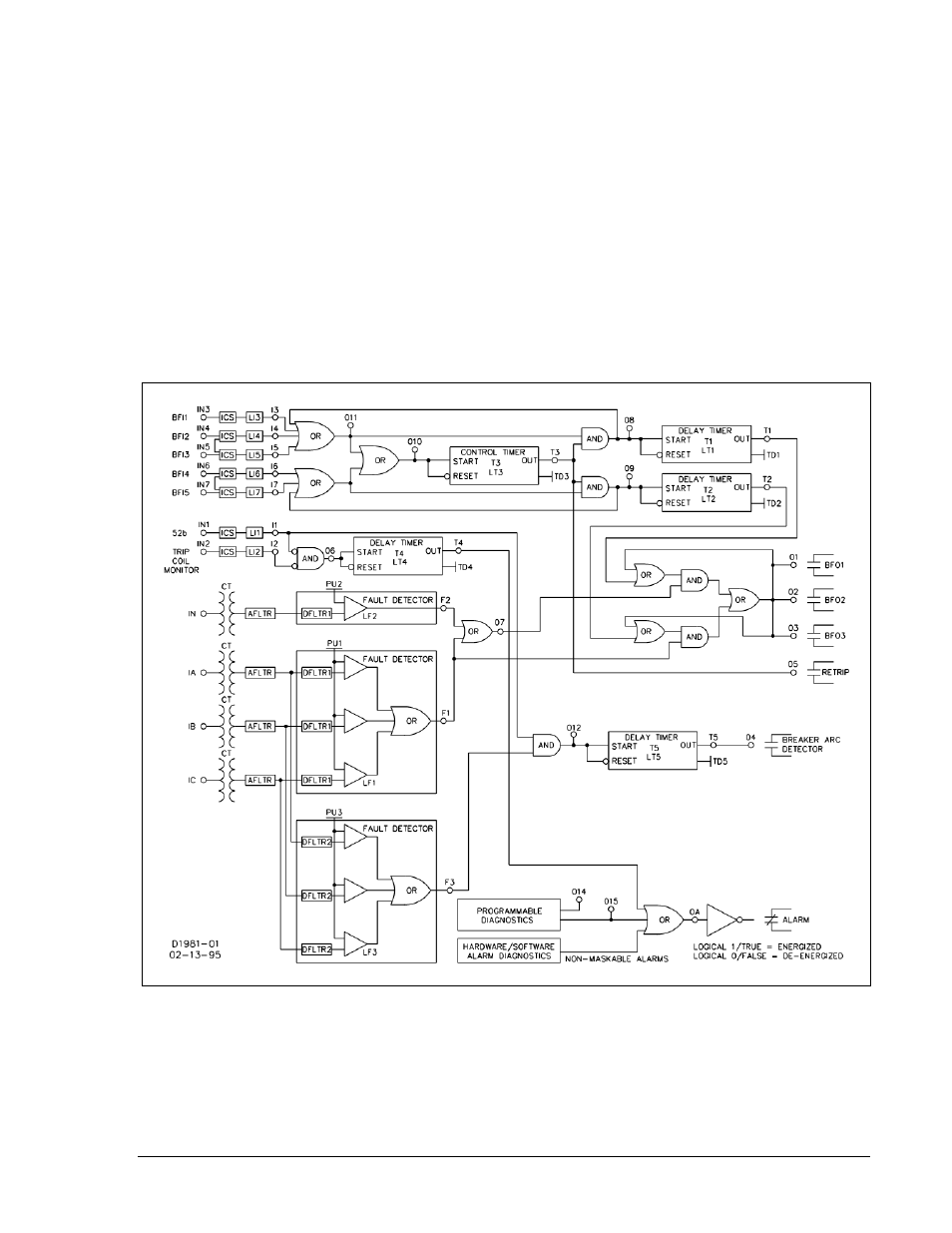Basler Electric BE1-BPR User Manual
Page 39

9272000990 Rev J
BE1-BPR Application
2-15
(F1) is still picked up, the BFO outputs (OUT1-3) will close, tripping the backup breakers. Control
timer, T3 is used to limit the breaker failure window of opportunity. Refer to the breaker failure timing
diagram in Section 1 for information on setting the delay and control timers.
Neutral fault detector (F2) is not used to supervise the single-pole BF logic because F2 is still picked
up by the phase imbalance after the fault clears. Three-phase BF logic is inhibited during this period
because there is no 3-phase BFI input active. For single-pole tripping, the phase pickup (PU1) must
be set above maximum load levels.
3. Trip Coil Status Monitor. Preprogrammed logic is provided using IN1 to provide breaker status and
IN2 for trip coil continuity. Refer to Application Data in this section information for further details on
the circuit operation.
4. Breaker Arc Protection. Preprogrammed logic is provided using fault detector 3 (F3) for the MAF fault
detector, IN1 for breaker status, and OUT4 for the arc detector output. Refer to Application Data in
this section for further details on the circuit operation.
5. Retrip Output. A retrip output is provided to give a backup trip signal to the breaker trip coil. This can
either provide a separate path to a single trip coil or be hooked to the backup trip coil if available.
6. Alarm Output. An Alarm output is provided to signal relay failure or diagnostic alarm.
Figure 2-18. BFL3 Logic
Breaker Failure Logic 1 for Enhanced Relays (BFL1E)
BFL1E logic (shown in Figure 2-19) provides the following application features.
1. Three-Pole Tripping BF Logic (No input or output latch-in provided). Three BFI inputs are available at
IN3, IN4, and IN5 to start delay timer T1. If the BFI inputs are not reset by the time timer 1 times out
and either the phase fault detector (F1) or neutral fault detector (F2) is picked up, then BFO1 (OUT1)
